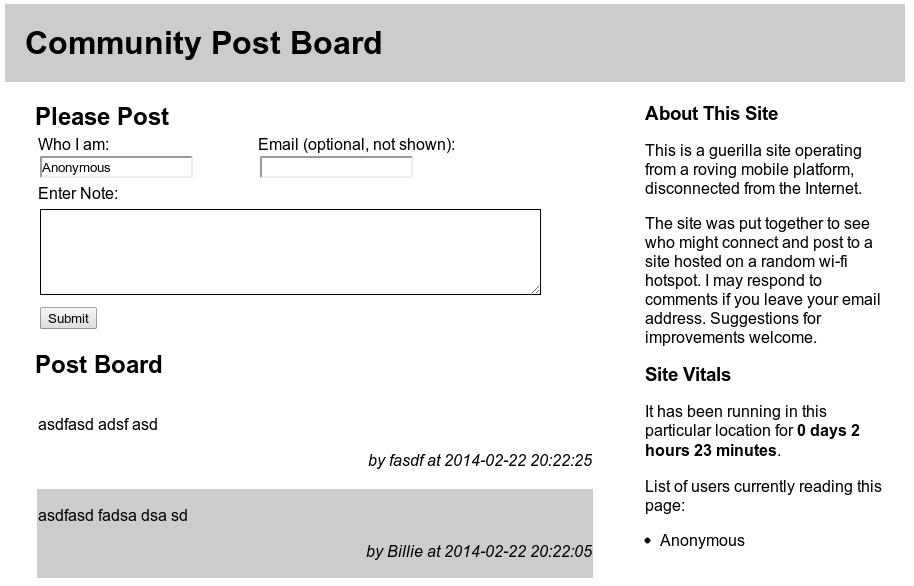Who connects to random WiFi hotspots?
I do. Even in an era of smartphones and data plans, every once in a while, I find myself searching for open WiFi hotspots.
Who else does? I set out to find out. I built a WiFi hotspot that served up an open-to-everyone community wall.
To build it, I set up my Raspberry Pi with a WiFi USB dongle, and configured it as a WiFi hotspot (with WPA security disabled). I needed a name that would encourage people to choose my hotspot over the others in the area - “CommunityWiFi” seemed like a suitable name.
I chose to use my Raspberry Pi because:
- its cheap enough I could leave it anywhere without worrying about it getting stolen
- its small
- it can run off a USB battery pack, so it can be taken anywhere
But there’s nothing special about this hardware setup - you could set this up with any laptop, a hacked Android phone, or home router.
The system is setup with a DHCP server, a DNS server (dnsmasq) configured to redirect all dns requests to the Pi, and a webserver configured to send all requests to the Community Wall page. The Community Wall consists of a couple PHP pages backed by SQLite.
Once the user attempts to visit any web page while connected to the hotspot, the system will direct them to the Community Wall, where they can read and post messages.
I took the system to our local library one morning. I tested it out with my smartphone, and everything worked great, but I received no posts over the hour or so I had it running. This is likely because most library users will have already saved the connection to the library’s own WiFi. I will be trying this out in other busy areas, without free wifi, and report back.
Some people have taken this idea much further than myself - check out PirateBox by David Darts. A PirateBox is a mobile WiFi hotspot that allows any user to connect, chat with other connected users, and share files.
